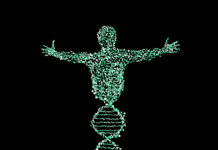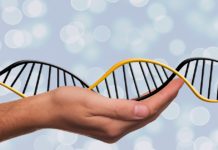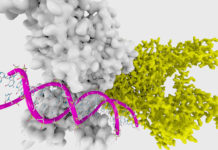Reimagining Healthcare
The conventional Western classification systems of health conditions are based on flawed science shaped by reductionist, hierarchical, and profit-driven ideologies. THEN wants to create a new paradigm built upon principles drawn from systems science, the life course perspective, developmental neurobiology, and other evidence-informed studies.
Mental Health Professionals Critique the Biomedical Model of Psychological Problems
While a great deal of the excitement about advances in psychological treatments comes from the potential for research in neuroscience to unlock the secrets of the brain, many mental health experts would like to temper this enthusiasm. A special issue of the Behavior Therapist released this month calls into question the predominant conception of mental illnesses as brain disorders.
Reclaiming Humanity at the Dawn of Posthumanism: Conversation with Darcia Narvaez
The postmodern zeitgeist of the past few decades encourages us to believe that we can endlessly reinvent ourselves untethered to our human biology. But the explosion of research on the microbiome reminds us that we are deeply embedded in an ecosystem that lives within us and around us, without which we cannot survive.
Researchers Call for Structural Competency in Psychiatry
Structural competency in psychiatry emphasizes the social factors shaping patient presentations and encourages physician advocacy.
Large German Anti-Stigma Campaign Shows Little Effect on Attitudes
“Overall, this study showed that the information and awareness campaign had almost no significant effects on the general public's attitudes toward people affected by either schizophrenia or depression,” the researchers, led by German medical sociologist Anna Makowski, wrote. “One could assume that deeply rooted convictions cannot be modified by rather time-limited and general activities targeted at the public.”
Researchers Question Link Between Genetics and Depression
A new study, published in the journal Molecular Psychiatry, found no link between genetics and the occurrence of depressive symptoms.
Search for Schizophrenia Gene Marches On
In a study released June 6, 2012 through the online journal Behavioral and Brain Functions, researchers from Japan acknowledge that "the results of association...
Child Poverty Linked to Early Neurological Impairment
A new NIH-funded study suggests that children from low-income environments are more likely to have neurological impairments. The researchers claim that these neurodevelopmental issues are “distinct from the risk of cognitive and emotional delays known to accompany early-life poverty.”
“Bewitching Science” Revisited: Tales of Reunited Twins and the Genetics of Behavior
In this article I will attempt to debunk one of the great “scientific” smoke and mirrors shows of the past half century—the claim that stories of reunited separated MZ (monozygotic, identical) twin pairs indicate that heredity plays a major role in causing human behavioral differences. These stories, which are often used to sell the false ideology of genetic determinism, have entered the public imagination in a way that academic research results never could. Here I will show that these stories provide no evidence whatsoever that (as yet undiscovered) “genes for behavior” influence human behavioral development.
Philosophers Challenge Psychiatry and its Search for Mechanisms of Disorder
Attempting to locate the mechanisms of psychiatric disorder is a step in the wrong direction and fails to challenge potentially unjust social practices.
The Failed Quest for Biomarkers in Psychiatry
A recent commentary by Ganesan Venkatasubramanian and Matcheri Keshavan notes that efforts to identify biomarkers in people diagnosed with psychiatric disorders have been overwhelmingly...
It is Time to Abandon the Candidate-Gene Approach to Depression
The candidate-gene approach to depression goes unsupported and is likely based on bad science, new research finds.
The Latest Gene Finding Claim in Psychiatry
On February 28th, the New York Times reported the latest psychiatric disorder “gene finding” claim in an article entitled “5 Disorders Share Genetic Risk Factors, Study Shows,” The Times reporter described a study that claimed to have identified shared genes associated with five psychiatric disorders: autism spectrum disorder, attention/deficit-hyperactivity disorder (ADHD), bipolar disorder, major depressive disorder, and schizophrenia. We have seen thousands of such claims in psychiatry since the 1960s, and we have also seen that these claims do not survive replication attempts.
Researchers Develop New Model for Understanding Depression
Acknowledging that current depression treatments are failing many people, researchers from Michigan State and MIT have developed a new model for understanding how multiple psychological, biological, social and environmental factors contribute to depression.
Researcher Urges Caution When Applying Genetics to Psychiatry
In a review editorial for the journal Psychotherapy and Psychosomatics, neurobiology researcher Steven Dubovsky from the University at Buffalo argues against the adoption of...
Comments on Jeffrey Lieberman and Ogi Ogas’ Wall Street Journal Article on the Genetics...
The March 3rd, 2016 edition of the Wall Street Journal featured an article by past President of the American Psychiatric Association (APA) Jeffrey Lieberman and his colleague, computational neuroscientist Ogi Ogas. The article was entitled “Genetics and Mental Illness—Let’s Not Get Carried Away.” In their piece, the authors started by expressing the belief that a recent study identified a gene that causes schizophrenia, and then discussed whether it is desirable or possible to remove allegedly pathological genes in the interest of creating a future “mentally perfect society.” The authors of the article, like many previous textbook authors, seem unfamiliar with the questionable “evidence” put forward by psychiatry as proof that its disorders are “highly heritable” In fact, DSM-5 Task Force Chair David Kupfer admitted that “we’re still waiting” for the discovery of “biological and genetic markers” for psychiatric disorders.
Study Links Antidepressants and Decreased Coping Behaviors Across Generations
Biologists found that exposure to antidepressants suppresses important survival behaviors in zebrafish, an effect that persisted across three generations and was found to be more severe for males.
Disease Theory of ‘Mental Illness’ Tied To Pessimism About Recovery
Researchers recently completed a first of its kind, large-scale international survey of attitudes about mental health and they were surprised by the results. According to their analysis published in this month’s issue of the Journal of Affective Disorders, people in developed countries, like the United States, are more likely to assume that ‘mental illnesses’ are similar to physical illnesses and biological or genetic in origin, but they are also much less likely to think that individuals can overcome these challenges and recover
The Genetics of Schizophrenia: A Left Brain Theory about a Right Brain Deficit in...
In recent months, two teams of researchers in the UK and the US published complementary findings about the epigenetic origins of schizophrenia that have scientific communities who indulge in ‘genetic conspiracy theories’ abuzz. While these results are intriguing, and no doubt involve pathbreaking research methodologies, this line of thought represents a decontextualized understanding both of the symptoms that are typically associated with schizophrenia, and their causes.
Exposure to Antidepressants in the Womb Linked to Autistic Behavior in Mice
Researchers experimenting on mice found that exposure to fluoxetine (Prozac) in utero resulted in behaviors considered in animal studies to be analogous to autism in humans.
Direct-to-Consumer Genetic Testing is Often Wrong
Direct-to-consumer (DTC) genetic testing has an “alarmingly high” 40% false-positive rate.
“Loneliness May Warp Our Genes, And Our Immune Systems”
NPR reports how loneliness can change our bodies and affect our physical and mental health. "There are things we can do to get out of a depressed or lonely state, but they're not easy," they report. "Part of the reason is because these negative psychological states develop some kind of molecular momentum."
Why Precision Psychiatry is Not a Paradigm Shift
A letter just published in JAMA Psychiatry suggests that “precision psychiatry” is not the paradigm shift it’s purported to be by the psychiatric establishment.
Effects of Stress Can Cross Generations
Researchers from the University of Cambridge have found, for the first time, that genes affected by stress during life can be passed to the...
Large Study Finds Epigenetic Changes Associated with Trauma Explained by Smoking
A new study suggests that epigenetic changes that have been associated with trauma may actually be due to environmental toxins.





















